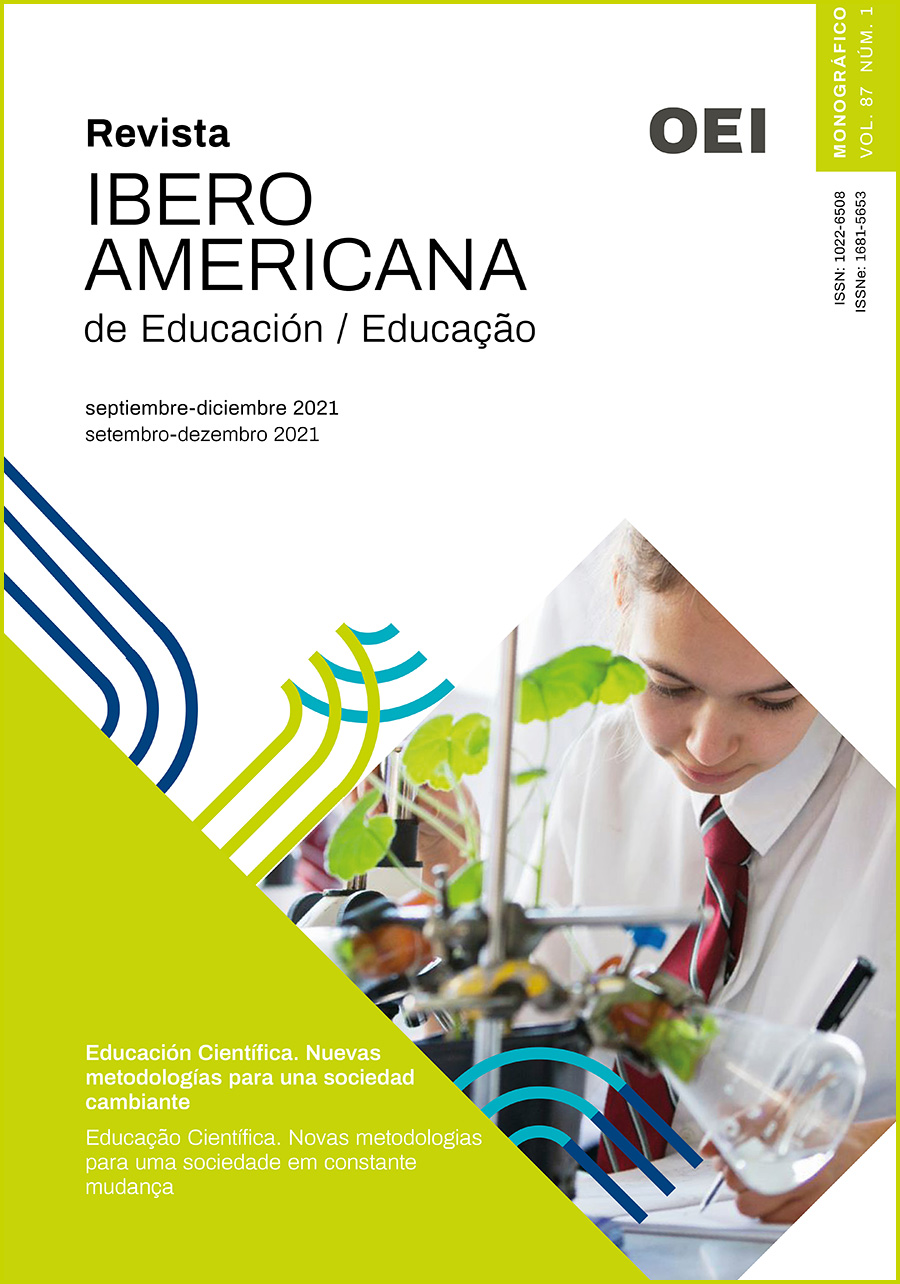Learning experimental microbiology in a virtual format in the context of a pandemic: an experience of implementing activities with the use of a portable set in the training of Biology and Natural Sciences teachers.
DOI:
https://doi.org/10.35362/rie8714594Keywords:
Microbiology; laboratory; didactics; science education; evidence-based education; initial teacher trainingAbstract
This paper presents the implementation of an innovative didactic proposal to perform practical activities in a microbiology course for students of pedagogy in biology and natural sciences. The proposal arose to solve the need for practical experiences in virtual format in the context of pandemic. The methodology consists of the design and delivery of a portable laboratory set to the homes of the course students and the implementation of experimental activities assisted virtually by the course teachers (an expert in microbiology and an expert in science didactics). The experimental activities included microorganism culture, Gram stain and the elaboration of a personalized investigation. Obtaining the results of this implementation was perform through a didactic sequence of virtual sessions, the observation of the students during the practical work, reports of results made by the students and a semi-structured interview with the students with emphasis on the valuation given to this experience and the perception about the learning achieved.
Downloads
References
Carrascosa, J., Gil-Pérez, D. y Vilches, A. (2006). Papel de la actividad experimental en la educación científica. Cad. Brás. Ens. Fis., 23(2), 157-181. https://doi.org/10.5007/%25x.
Cofré, H. (2012). La enseñanza de la naturaleza de la ciencia en Chile: del currículo a la sala de clases. Revista Chilena de Educación Científica, 11 (1), 12-21. Recuperado de https://bit.ly/3yQ3j29.
Couso, D. (2011). Las secuencias didácticas en la enseñanza y el aprendizaje de las ciencias: modelos para su diseño y validación. En Caamaño, A. (coord.), Didáctica de la física y química. Barcelona: Graó.
Cybulski J., Clements, J. y Prakash, M. (2014). Foldscope: origami-based paper microscope. PLoS ONE. 9(6). https://doi.org/10.1371/journal.pone.0098781.
Dyasi, H. (2014). Enseñanza de la ciencia basada en la indagación: razones por las que debe ser la piedra angular de la enseñanza y aprendizaje de la ciencia. En Dyasi, H., Harlen, W., Figueroa, M., Léna, P., y López, P. La Enseñanza de la Ciencia en la Educación Básica. Antología sobre Indagación. (pp. 9-18). México: Innovec. Recuperado de https://bit.ly/3yPlyoo
Merkel, S. (2016). American Society for Microbiology resources in support of an evidence-based approach to teaching microbiology. FEMS Microbiol Lett, 363(16). https://doi.org/10.1093/femsle/fnw172.
Ministerio de Educación de Chile (2019). Progresión de objetivos de aprendizaje para Ciencias Naturales de 7º Básico a 2º Medio. Recuperado de https://bit.ly/3AMoi6r.
Morel, M., Peruzzo, N., Juele, A. y Amarelle, V. (2019). Comics as an educational resource to teach microbiology in the classroom. Journal Microbiology & Biology Education, 20(1). https://doi.org/10.1128/jmbe.v20i1.1681.
Rivas, A. (2020). Pedagogía de la excepción ¿cómo educar en la pandemia? Universidad de San Andrés. Recuperado de https://bit.ly/3yPyB9a.
Scavone, P., Carrasco, V., Umpiérrez, A., Morel, M., Arredondo, D y Amarelle, V. (2019). Microbiology can be comic. FEMS Microbiol Lett, 366(14). https://doi.org/10.1093/femsle/fnz171.
Sjöström, J. y Eilks, I. (2018). Reconsidering different visions of scientific literacy and science education based on the concept of bildung. En Y. J. Dori, Z. Mevareach, y D. Bake (Eds.), Cognition, metacognition and culture in STEM education (pp. 65–88). Dordrecht: Springer. https://doi.org/10.1007/978-3-319-66659-4_4.
Smith, A. y Hussey, M. (2005). Gram stain protocols. American Society for Microbiology. Washington Recuperado de https://bit.ly/3APnkGH.
Sosa, J. y Dávila, D. (2019). La enseñanza por indagación en el desarrollo de habilidades científicas. Educación y Ciencia, 23, 605-624. Recuperado de https://bit.ly/3xUnSZH.
Vásquez-Alonso, A. y Manassero-Mas, M. (2019). La educación de ciencias en contexto: Aportaciones a la formación del profesorado. Tecné, Episteme y Didaxis: TED, 46, 15-37. https://doi.org/10.17227/ted.num46-10538.
How to Cite
Published
Issue
Section
License
Any authors who publish with this journal accept the following terms:
















